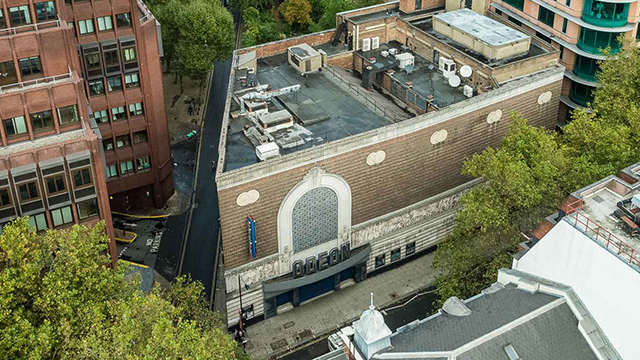Kousouros v O’Halloran and another
Civil procedure – Disclosure of documents – Legal advice privilege – Father purchasing house in England – Issue arising between children as to ownership of property following death of father – Whether property forming part of deceased’s estate – Judge refusing application by second defendant sister for non-disclosure of information given to HM Revenue and Customs – Second defendant appealing — Whether second defendant entitled to legal advice privilege – Whether delay in seeking relief fatal to claim – Appeal allowed
The claimant and the second defendant were brother and sister. In around 1960, their father purchased a large house in England. Following the father’s death in Cyprus in January 2007, the second defendant instructed the first defendant solicitor to recover her share of the English estate, relying on her father’s Cypriot will, by which she and the claimant were to receive equal shares in his estate. A dispute arose as to whether the property was part of the estate. It was agreed that the first defendant would act on the second defendant’s behalf and his assistant would deal with the administration of the estate. After considerable delays, in January 2010, the first defendant applied for letters of administration on the behalf of the second defendant which were granted on the basis that they were for her use and benefit.
Civil procedure – Disclosure of documents – Legal advice privilege – Father purchasing house in England – Issue arising between children as to ownership of property following death of father – Whether property forming part of deceased’s estate – Judge refusing application by second defendant sister for non-disclosure of information given to HM Revenue and Customs – Second defendant appealing — Whether second defendant entitled to legal advice privilege – Whether delay in seeking relief fatal to claim – Appeal allowed The claimant and the second defendant were brother and sister. In around 1960, their father purchased a large house in England. Following the father’s death in Cyprus in January 2007, the second defendant instructed the first defendant solicitor to recover her share of the English estate, relying on her father’s Cypriot will, by which she and the claimant were to receive equal shares in his estate. A dispute arose as to whether the property was part of the estate. It was agreed that the first defendant would act on the second defendant’s behalf and his assistant would deal with the administration of the estate. After considerable delays, in January 2010, the first defendant applied for letters of administration on the behalf of the second defendant which were granted on the basis that they were for her use and benefit. In September, the claimant asked the first defendant to transfer the property into his sole name and to concur in the registration of his ownership at HM Land Registry. At least by that stage, a potential conflict of interest existed between the first defendant’s duty to act for the second defendant as a beneficiary claiming an interest in an estate that included the property and his duty to act on behalf of the estate where there was an issue whether the property formed part of the estate. In October 2010, the first defendant ceased to act for the second defendant. The claimant commenced proceedings against both defendants, seeking declarations that he was entitled to the entire beneficial interest in the property and that it did not form part of the estate. He also sought an order that the first defendant execute a transfer of property or concur in his registration as proprietor. The claimant argued that the property did not form part of his father’s estate because it had been transferred to him inter vivos, under an oral agreement with his parents. The second defendant applied for an order that certain documents, containing information received the first defendant from the second defendant when he was acting as her solicitor, should not be disclosed to the claimant on the basis of legal advice privilege. The judge dismissed that application on the ground that, where a solicitor acted as the personal representative of the estate, the beneficiaries under the will had a joint interest in the administration of the estate and legal advice privilege was held jointly between them and could not be asserted by one against the other. The second defendant appealed. Held: The appeal was allowed. (1) In circumstances where a solicitor acted in more than one capacity there was always a potential conflict between different duties which might be owed. Whilst the claimant and the second defendant had a joint interest as beneficiaries under the will in ensuring that it was properly administered, the consequence was not that the second defendant was unable to maintain the legal advice privilege in relation to her original instructions to the first defendant and in relation to the advice she received. As regards joint interest privilege, the joint interest had to exist when the communications in issue had come into existence. The communications had to have come into being for the furtherance of the joint interest. It was unclear whether a client was necessarily prevented from asserting privilege in advice he had obtained simply because someone else, who had not been a party to the original lawyer-client relationship, could assert a joint interest in the advice: Goddard v Nationwide Building Society [1987] QB 670, Ventouris v Mountain [1991] 1 WLR 607 and Schmidt v Rosewood Trust [2003] 2 AC 709 considered. The privileged information had come into existence in January 2007. At that point, the first defendant had had no role in the administration and there had been no question of a joint interest with anyone else. The second defendant had been entitled to unburden herself to the first defendant without reserve and without the fear that the opposing party might rely on the communications if a dispute came before the court for decision. It had not been open to the first defendant to decide that he was no longer bound by the duty of confidence to his client. He ought to have withdrawn entirely. The claimant had been entitled, as one of the beneficiaries, to know the broad circumstances in which the payment of inheritance tax had been paid and then reclaimed. However, the letter in issue had contained privileged material that was properly the subject of an obligation of confidentiality and the first defendant was entitled to the protection of the court in maintaining privilege in relation to it. Accordingly, the judge had been wrong to conclude that the material documents and/or their contents were not subject to legal advice privilege: Talbot v Marshfield (1865) 2 Dr and Sm 549 and O’Rourke v Darbishire [1920] AC 581 considered. (2) Once a privileged document came into the hands of an opposing party, the law in relation to breach of confidence came into play and the court could intervene under its equitable jurisdiction to prevent an actual or threatened breach of confidence. It was important to bear in mind the issue of proportionality. The starting point was that the court would normally intervene to prevent the use of the confidential information and it was not concerned with a balance between a public interest in the emergence of the truth on the one hand and the maintenance of confidentiality on the other. However, once the party asserting the privilege or confidentiality of the document becomes aware of the facts, it had to act promptly. In the present case, the four month delay between the claimant seeing the document in issue and the second defendant taking steps to prevent him from using its contents, was not fatal to the second defendant’s claim for an injunction to restrain the use of the confidential material therein. letter. To the extent that the material had come into the hands of the claimant, an order would be made maintaining its confidentiality and precluding its use: ISTIL Group Inc v Zahoor [2003] EWHC 165 (Ch) considered. Grant Armstrong (instructed by YVA Solicitors LLP) appeared for the claimant; The first defendant did not appear and was not represented; Gerald Wilson (instructed by Hodge, Jones & Allen) appeared for the second defendant. Eileen O’Grady, barrister










